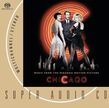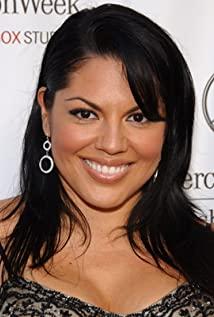If you talk about the greatness of the play itself, then "Chicago" can't compare to "The Phantom of the Opera", "Les Miserables", "Sissi" and other musicals. They represent those who pursue true love, those who pursue happiness, and those who pursue freedom convey to us the power of true love, happiness, and freedom. After watching "Chicago", I found that there is no good person in it, yes, there is one, a Hungarian woman, but the best person is also the worst in the end. The whole show is full of real darkness and blood, money and sex, people and people taking advantage of each other, social values are completely distorted - if you can't make yourself famous, make yourself notorious! if you cannot be famous, then be infamous. This is the law of survival in Chicago. The sharp judgment and sarcasm impresses everyone who sees it.
The biggest shock to me after watching it is that in the flashy world of Chicago style, the value of women can only be reflected in sex. Men abandon women after they have satisfied their sexual desires. Women's own frailty decides. They can only use extreme methods to solve the man's infidelity and abandonment - kill him. Personally, I think the most exciting part of the play is the midnight tango of the six female criminals. The sound of water droplets, footsteps, and finger snaps subtly wears the main theme of tango, and uses tango to jump out of their helplessness and anger, red ribbons, and prison blood. The light and shadow, the interlacing of six sounds and colors, is extremely shocking.
Narrating through dance is the biggest feature of "Chicago", the jazz with all kinds of style, the angry tango, the ridiculous and sad puppet show, the tapping of psychological activities... It is so fashionable and sensible. The intertwining of stage and reality (especially when the Hungarian woman is hanged) makes it feel like life in Chicago is such a stage play.
If you want to understand "Chicago" in depth, you need to trace the profound social meaning behind its uncomplicated plot. Chicago of 1920-1930 was the crime capital of America, and one of the most dramatic acts of crime occurred. At first glance, the film seems to be doing its best to glorify the murder suspects (although they are all women), but it doesn't actually blame everything on society's old-fashioned stereotypes, but aims sharply at all aspects, especially the judiciary. The system (mama in prison) and the mass media, and the murderers are not simply portrayed as victims of the system. It seems to be based on the headlines in today's newspapers. It reflects the abuse of freedom of speech by the media in that era through simple plots. From one side, it also sets off the complex judicial system in the United States at that time. A fair court is two different things. This strong satire runs through the play from beginning to end.
It is worth mentioning that "Chicago" is a work that combines musicals and commercial operations very well. It uses Hollywood's film packaging and operation mode to market Broadway musicals. The musical is to spread culture to the masses, Instead of putting it up for appreciation, musicals are ultimately going to the market and to life. On this development path, the most important thing to pay attention to is not to let the exaggeration of the film replace the real art.
View more about Chicago reviews










